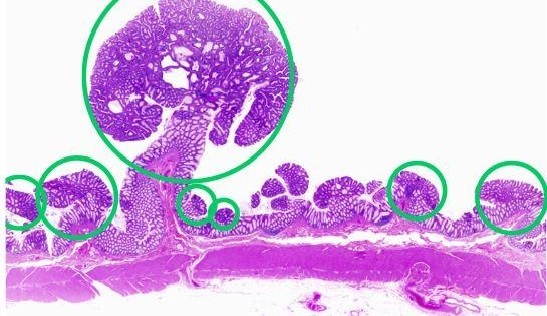Individuals bearing a mutation in the APC gene have an increased risk (>95%) to manifest colorectal cancer with polyps until the age of 40. Patients presenting the classic form of the disease, with hundreds or even thousands of polyps, have a greater probability (>90%) to harbor a mutation in the APC gene whilst patients with <100 polyps (attenuated FAP) have a relatively smaller probability (<30%). Timely detection of any existing mutations can be crucial in confirming disease diagnosis and may also help substantially in predisposition testing.
Familial adenomatous polyposis (FAP) – APC gene

We perform DNA sequence analysis, via Next Generation Sequencing (NGS) on a Genome Analyzer – Ion Proton platform, of all exons and intron-exon junctions/splice sites of the APC gene, as well as deletion/duplication analysis through MLPA (non-detectable by DNA sequencing), allowing us to detect >98% of all pathogenic mutations of the gene.
Please note that InterGenetics participates successfully in the EMQN external quality control (EQA) scheme for genetic testing of familial adenomatous polyposis.
See also genomic testing for gastrointestinal cancers – 21 genes NGS panel